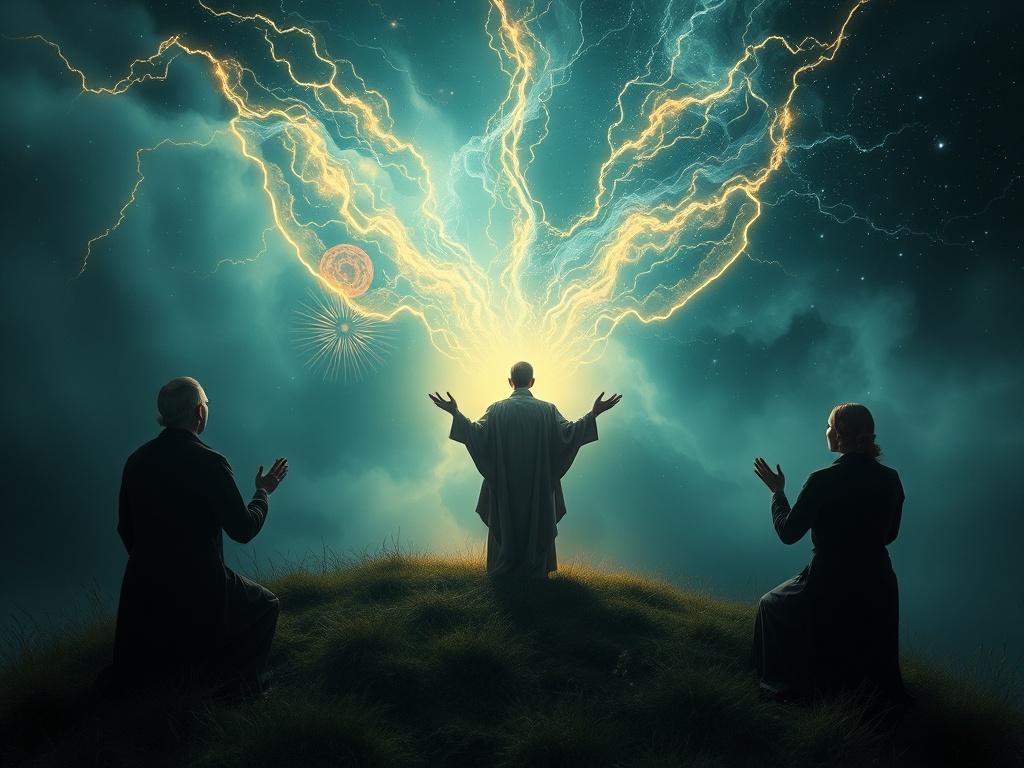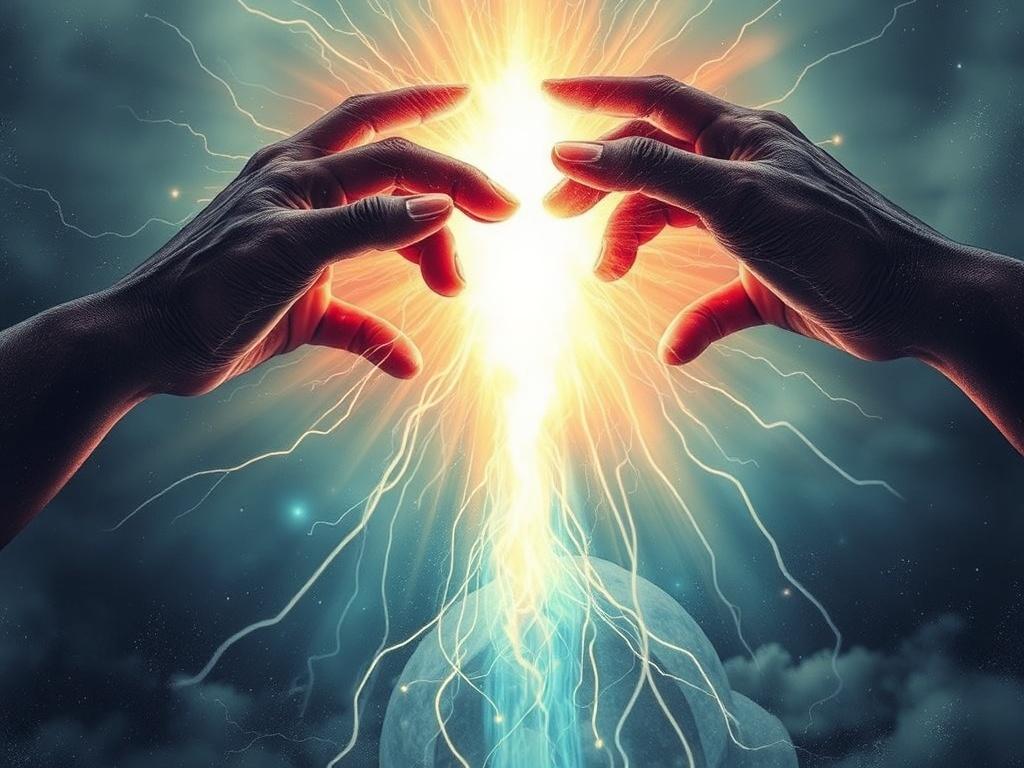The Fascination with the Unknown

From time immemorial, humans have been captivated by the idea that there is more to the world than what meets the eye. The supernatural—forces and beings beyond our normal understanding—has always intrigued people across cultures and centuries. But why do people believe in the supernatural? What draws them to concepts like ghosts, spirits, psychic powers, and unexplained phenomena? This article will explore the psychological, cultural, and social reasons behind this enduring fascination, uncovering why belief in the supernatural remains deeply rooted even in our modern, technology-driven world.
Believing in the supernatural can give life a certain depth and meaning. When something strange or unexplainable happens, people often seek comfort or explanations beyond everyday reality. The supernatural becomes a lens through which people interpret unusual experiences—from eerie feelings to inexplicable coincidences. It provides a framework to make sense of mysteries that science hasn’t yet fully unraveled.
Psychological Factors Behind Belief in the Supernatural

One key reason why people believe in the supernatural lies within the human mind itself. Cognitive psychology suggests that our brains are wired to look for patterns and meaning, even in random events. This tendency, known as *patternicity*, helps survival by making predictions about the environment, but it also leads people to see connections where none actually exist. For example, someone might experience a series of coincidences and interpret it as a sign from a supernatural power.
Closely linked is *agenticity*, the tendency to attribute intentionality and agency to events. When things happen unexpectedly, like objects moving seemingly on their own or strange noises in the night, the mind instinctively assumes there must be an unseen agent behind it. This instinct can manifest as belief in ghosts, spirits, or other supernatural beings.
Emotions play a crucial role too. Fear, awe, wonder, and curiosity make the supernatural deeply appealing. Believing in something greater than ourselves can reduce anxiety about death and the unknown, providing emotional comfort. Supernatural beliefs often arise during times of stress or loss, when people look for reassurance that their loved ones continue to exist beyond physical death.
The Role of Culture and Tradition
Belief in the supernatural is not just an individual psychological phenomenon; it is also deeply embedded in culture and tradition. Throughout history, practically every society has its own stories about gods, spirits, witches, and other mystical beings. These narratives often serve to explain natural phenomena, set moral codes, and create a sense of community belonging.
Cultural stories and folklore are powerful because they are passed down through generations, becoming part of a group’s identity. They help people make sense of the world in a way that feels familiar and meaningful. Whether it’s the ancient Egyptian gods, Native American spirit animals, or European tales of witches and elves, these supernatural elements enrich the cultural tapestry and connect people to their heritage.
Social Influences and Community Belonging
Humans are social creatures, and our beliefs are often shaped by those around us. Social influences can encourage belief in the supernatural by normalizing it within a community. When friends, family, or religious groups share stories about supernatural experiences or endorse spiritual practices, individuals are more likely to hold similar beliefs.
Supernatural belief systems can foster a strong sense of identity and belonging. Rituals, ceremonies, and shared experiences linked to supernatural faiths bring people together, creating bonds that are difficult to replicate through secular means. This social cohesion is particularly evident in religious communities where belief in the supernatural is a cornerstone.
Scientific Skepticism versus Supernatural Belief
As science advances, one might expect belief in the supernatural to decline. Yet, paradoxically, many people hold onto supernatural beliefs even in scientific societies. This highlights the complexity of human belief systems, where empirical evidence is just one factor among many.
Science explains much of the natural world, but it doesn’t always provide immediate answers to existential questions about life, purpose, or consciousness. In these gaps, supernatural beliefs thrive. For instance, questions like “What happens after death?” or “Why are we here?” remain largely unanswered by science, leaving room for supernatural interpretations.
It is also important to realize that skepticism about the supernatural doesn’t automatically negate the value these beliefs provide. For many, supernatural beliefs coexist comfortably with scientific understanding, serving different emotional and philosophical needs.
Common Supernatural Beliefs and Their Appeal
To understand why people believe in the supernatural, it is useful to look at some of the most common types of supernatural beliefs and why they endure. Here’s a quick overview presented in the table below:
| Supernatural Belief | Description | Why It Appeals |
|---|---|---|
| Ghosts and Spirits | The idea that the souls of the dead linger or appear to the living. | Provides comfort about life after death, explains unusual experiences. |
| Psychic Powers | Abilities like telepathy, clairvoyance, or precognition beyond the normal senses. | Offers hope of special insight into the future or hidden knowledge. |
| Magic and Witchcraft | The use of supernatural rituals or spells to influence events. | Gives a feeling of control over uncertainty and fate. |
| Mythical Creatures | Beings like fairies, dragons, or demons that exist beyond natural reality. | Sparks imagination and conveys cultural morals in symbolic forms. |
| Gods and Deities | Supreme beings that govern the universe or human destiny. | Answers big questions and supports moral frameworks. |
How Personal Experiences Shape Belief in the Supernatural
Personal encounters often serve as the strongest justification for belief in the supernatural. These experiences can be fleeting, subjective, but deeply convincing for those involved. Hearing unexplained noises, feeling a presence in an empty room, or having a vivid dream that later seemingly comes true can all reinforce belief.
People’s interpretations of these experiences are shaped by their expectations, cultural background, and openness to supernatural ideas. For example, two people might witness the same strange event but interpret it very differently—one as a ghost, the other as a trick of the light.
Often, these personal stories spread by word of mouth or through social media, creating communities of believers who share testimonies and support each other’s experiences.
Superstition: The Everyday Side of Supernatural Belief
Superstition is perhaps the most widespread everyday expression of belief in the supernatural. Whether it is knocking on wood, avoiding walking under ladders, or carrying lucky charms, superstitious behaviors are attempts to influence fate and avoid bad luck.
Interestingly, even highly educated and rational individuals often practice superstitions. This shows how deeply ingrained supernatural thinking can be in human behavior. Superstition bridges the gap between casual belief and significant spiritual faith, showing how the supernatural permeates daily life.
The Intersection of Religion and the Supernatural
Religions are some of the most organized and enduring systems of supernatural belief. They often provide elaborate explanations of the unseen world, including the existence of spirits, miracles, divine intervention, and an afterlife.
Religion and supernatural belief often fulfill similar needs: explaining the unknown, providing hope, and establishing ethical guidelines. For many believers, the supernatural components of their faith are essential and deeply personal. Religious rituals, prayers, and worship often involve direct appeals to supernatural forces, reinforcing belief through experience.
Science, Spirituality, and the Future of Supernatural Belief
In today’s world, the tension between scientific skepticism and supernatural belief continues. However, many thinkers propose that science and spirituality don’t have to be opposing forces. Instead, they can offer complementary perspectives—science explains the “how,” while spirituality addresses the “why.”
Emerging fields like quantum physics and consciousness studies raise profound questions that echo supernatural themes. Concepts like the interconnectedness of all things and the mysteries of consciousness hint at realms beyond our current understanding.
As science advances, it may reveal new horizons that either explain supernatural phenomena or further deepen the mystery, ensuring that belief in the supernatural remains a vital part of the human experience.
Conclusion
The question of why people believe in the supernatural is complex and multifaceted, weaving together psychology, culture, social dynamics, and personal experience. At its core, belief in the supernatural fulfills a deeply human need to find meaning, comfort, and connection to a reality beyond the tangible world. Whether through ancient traditions, personal encounters, or social bonds, these beliefs endure because they speak to fundamental aspects of our existence: fear of the unknown, curiosity about life’s mysteries, and the desire to feel a part of something greater. Even in an age dominated by science and technology, the supernatural continues to captivate minds and hearts, proving that some mysteries are simply too rich and compelling to let go.




















